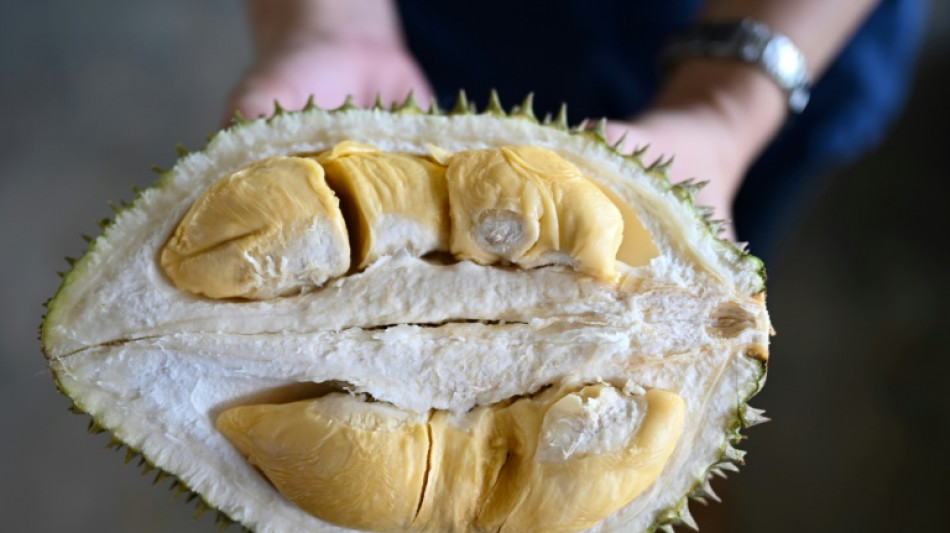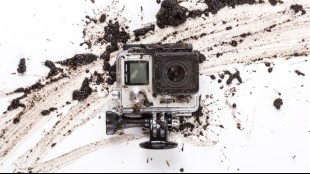
-
 Wales revel in being the underdogs, says skipper Lake
Wales revel in being the underdogs, says skipper Lake
-
German school students rally against army recruitment drive

-
 Wary European states pledge military aid for Cyprus, Gulf
Wary European states pledge military aid for Cyprus, Gulf
-
Liverpool injuries frustrating Slot in tough season

-
 Real Madrid will 'keep fighting' in title race, vows Arbeloa
Real Madrid will 'keep fighting' in title race, vows Arbeloa
-
Australia join South Korea in quarters of Women's Asian Cup

-
 Kane to miss Bayern game against Gladbach with calf knock
Kane to miss Bayern game against Gladbach with calf knock
-
Henman says Raducanu needs more physicality to rise up rankings

-
 France recall fit-again Jalibert to face Scotland
France recall fit-again Jalibert to face Scotland
-
Harry Styles fans head in one direction: to star's home village

-
 Syrian jailed over stabbing at Berlin Holocaust memorial
Syrian jailed over stabbing at Berlin Holocaust memorial
-
Second Iranian ship heading to Sri Lanka after submarine attack

-
 Middle East war spirals as Iran hits Kurds in Iraq
Middle East war spirals as Iran hits Kurds in Iraq
-
Norris hungrier than ever to defend Formula One world title

-
 Fatherhood, sleep, T20 World Cup final: Henry's whirlwind journey
Fatherhood, sleep, T20 World Cup final: Henry's whirlwind journey
-
Conservative Nigerian city sees women drive rickshaw taxis

-
 T20 World Cup hero Allen says New Zealand confidence high for final
T20 World Cup hero Allen says New Zealand confidence high for final
-
The silent struggle of an anti-war woman in Russia

-
 Iran hits Kurdish groups in Iraq as conflict widens
Iran hits Kurdish groups in Iraq as conflict widens
-
China sets lowest growth target in decades as consumption lags

-
 Afghans rally against Pakistan and civilian casualties
Afghans rally against Pakistan and civilian casualties
-
South Korea beat Philippines 3-0 to reach women's quarter-finals

-
 Mercedes' Russell not fazed by being tipped as pre-season favourite
Mercedes' Russell not fazed by being tipped as pre-season favourite
-
Australia beat Taiwan in World Baseball Classic opener

-
 Underdogs Wales could hurt Irish after Scotland display: Popham
Underdogs Wales could hurt Irish after Scotland display: Popham
-
Gilgeous-Alexander rules over Knicks again in Thunder win

-
 Hamilton reveals sequel in the works to blockbuster 'F1: The Movie'
Hamilton reveals sequel in the works to blockbuster 'F1: The Movie'
-
Alonso, Stroll fear 'permanent nerve damage' from vibrating Aston Martin

-
 China boosts military spending with eyes on US, Taiwan
China boosts military spending with eyes on US, Taiwan
-
Seoul leads rebound across Asian stocks, oil extends gains

-
 Tourism on hold as Middle East war casts uncertainty
Tourism on hold as Middle East war casts uncertainty
-
Bayern and Kane gambling with house money as Gladbach come to town

-
 Turkey invests in foreign legion to deliver LA Olympics gold
Turkey invests in foreign legion to deliver LA Olympics gold
-
Galthie's France blessed with unprecedented talent: Saint-Andre

-
 Voice coach to the stars says Aussie actors nail tricky accents
Voice coach to the stars says Aussie actors nail tricky accents
-
Rahm rejection of DP World Tour deal 'a shame' - McIlroy

-
 Israel keeps up Lebanon strikes as ground forces advance
Israel keeps up Lebanon strikes as ground forces advance
-
China prioritises energy and diplomacy over Iran support

-
 Canada PM Carney says can't rule out military participation in Iran war
Canada PM Carney says can't rule out military participation in Iran war
-
Verstappen says new Red Bull car gave him 'goosebumps'

-
 Swiss to vote on creating giant 'climate fund'
Swiss to vote on creating giant 'climate fund'
-
Google to open German centre for 'AI development'

-
 Winter Paralympics to start with icy blast as Ukraine lead ceremony boycott
Winter Paralympics to start with icy blast as Ukraine lead ceremony boycott
-
Sci-fi without AI: Oscar nominated 'Arco' director prefers human touch

-
 Ex-guerrillas battle low support in Colombia election
Ex-guerrillas battle low support in Colombia election
-
'She's coming back': Djokovic predicts Serena return

-
 Hamilton vows 'no holding back' in his 20th Formula One season
Hamilton vows 'no holding back' in his 20th Formula One season
-
Two-thirds of Cuba, including Havana, hit by blackout

-
 US sinks Iranian warship off Sri Lanka as war spreads
US sinks Iranian warship off Sri Lanka as war spreads
-
U.S. Polo Assn. Expands Collegiate Partnership Program to Record 70 Teams for 2026 Season


From drones to sensors, Malaysian durian grower goes high-tech
Drones spraying pesticide, sensors taking soil readings, sprinklers that squirt fertiliser at the touch of a button -- a Malaysian plantation is using high-tech methods to boost its crop of pungent durians.
Grown across Southeast Asia, fans hail the spiky durian as the "king of fruit" due to its bittersweet flavours and creamy golden flesh, and it is particularly popular in China.
But to its detractors it is the world's smelliest fruit, with an overpowering stench like rotting food that has seen it banned in hotels and on public transport across the region.
In a competitive market, Malaysian grower Top Fruits Plantations has turned to high-tech methods to lift its output.
"It's a much faster way to get more consistent results," managing director Tan Sue Sian told AFP during a recent tour of one of the company's plantations in Batu Pahat, southern Johor state.
Using technology allows farmers to gauge more precisely how much fertiliser and water the trees need, he said.
"When you give what is needed, the fruit will be much more consistent. The shape will be better, and the aroma will be better," added Tan, who has more than 30 years' experience growing durians.
- Sensors essential -
Key in the drive are sensors spread across 400 acres (160 hectares) of Top Fruits' 700-acre Batu Pahat plantation, relaying data on soil quality and content to workers' handheld devices.
The sensors are boxes mounted on poles, connected to the soil with a series of cables. By 2024, the entire plantation should be kitted out with them.
Sprinklers attached to a network of pipes are remotely activated to spray fertiliser onto the trees, while drones hover over the plantation squirting pesticide.
Such methods are unheard of on Malaysian durian farms, where growers typically rely on a large labour force, instinct and educated guesses.
The investment has been hefty -- Top Fruits has spent about four million ringgit ($900,000) over the past three years on the technology.
But it has led to an increase in yields of 40 percent, while its workforce has shrunk by 30 percent.
The company is now able to produce 800 tonnes of durians from its farms every year, with more than 80 per cent of its crop frozen in factories to be exported overseas, much of it to China.
In a bid to further boost their crop, Top Fruits is getting into research by setting up a lab and collaborating with local universities.
K.Thomson--BTB


